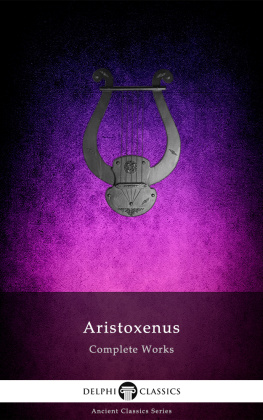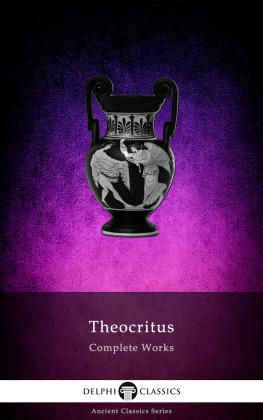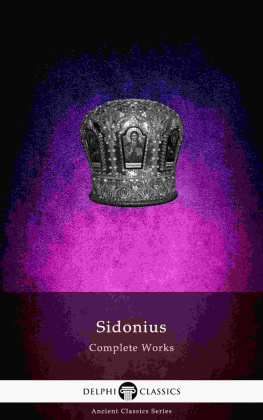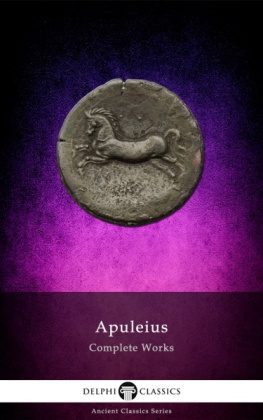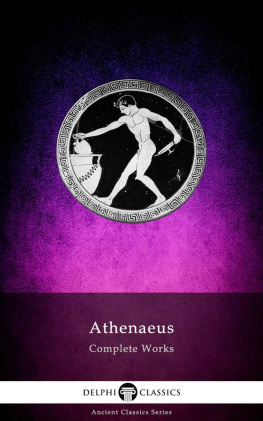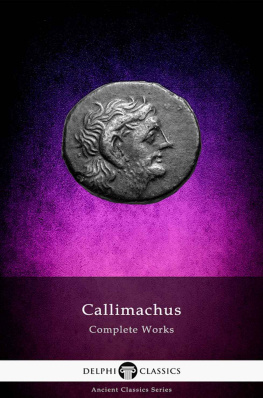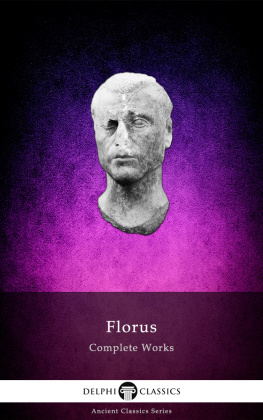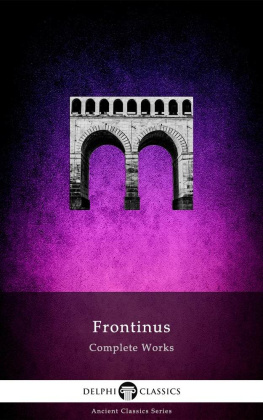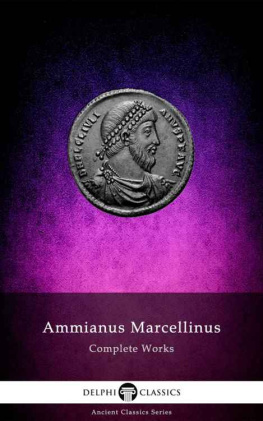The Complete Works of
VARRO
(116 BC27 BC))

Contents

Delphi Classics 2017
Version 1

The Complete Works of
MARCUS TERENTIUS VARRO
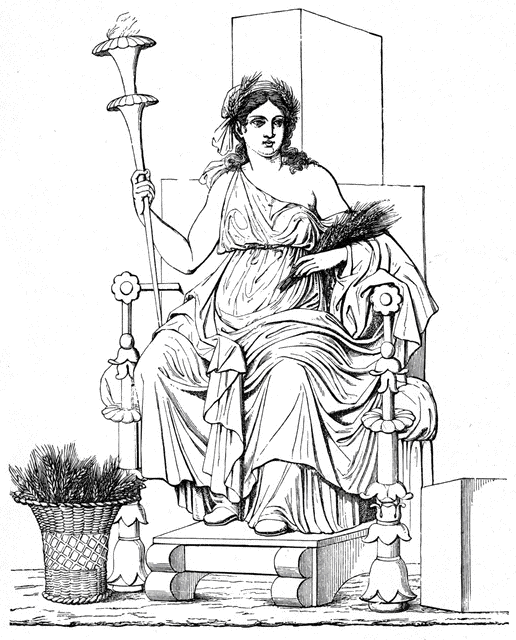
By Delphi Classics, 2017
COPYRIGHT
Complete Works of Marcus Terentius Varro
First published in the United Kingdom in 2017 by Delphi Classics.
Delphi Classics, 2017.
All rights reserved. No part of this publication may be reproduced, stored in a retrieval system, or transmitted, in any form or by any means, without the prior permission in writing of the publisher, nor be otherwise circulated in any form other than that in which it is published.
ISBN: 978 1 78656 389 7
Delphi Classics
is an imprint of
Delphi Publishing Ltd
Hastings, East Sussex
United Kingdom
Contact: sales@delphiclassics.com
www.delphiclassics.com
The Translations

Rieti, as seen from San Mauro hill, east of the city, Lazio, central Italy Varro was born near Reate (now Rieti).

Remains of a Roman bridge at Rieti, third century BC
ON AGRICULTURE

Varro was born in Reate, now Rieti, to a family of equestrian rank, which owned a large farm in the Reatine plain, near Lago di Ripa Sottile. He supported Pompey, reaching the office of praetor, after having been tribune of the people, quaestor and curule aedile. Varros literary output was prolific; with scholars estimating him to have produced 74 works in approximately 620 books, of which only one work survives complete, although we possess numerous fragments of the others, many contained in Gellius Attic Nights . Regarded as the most learned of the Romans by Quintilian ( Inst. Or . X.1.95), Varro was recognised as an important source by many other ancient authors, including Cicero, Pliny the Elder, Virgil, Aulus Gellius, Macrobius, Augustine and Vitruvius, who credits him with a book on architecture.
Varros only complete extant work is Rerum rusticarum libri tres (On Agriculture), formed of three books. The work concerns country affairs, opening with an effective setting of the agricultural scene, while also employing dialogue. The first book covers the themes of agriculture and farm management, the second deals with sheep and oxen, while the third concludes with poultry and the keeping of other animals, including bees and fishponds. The text is notable for its lively interludes, as well as graphic background detail concerning political events, of which Varro was a key figure.

Gnaeus Pompeius Magnus, Pompey the Great, (106 48 BC), Julius Caesars great rival, was a military and political leader of the late Roman Republic, as well as a legendary general. Varro supported Pompey politically.

Gallo-Roman harvesting machine relief from Trier
CONTENTS

Lago di Ripa Sottile, nar the farm owned by Varros family
LOEB CLASSICAL LIBRARY TRANSLATION (HOOPER)
Translated by William Davis Hooper and Revised by Harrison Boyd Ash
BOOK I
[1.1] Had I possessed the leisure, Fundania, I should write in a more serviceable form what now I must set forth as I can, reflecting that I must hasten; for if man is a bubble, as the proverb has it, all the more so is an old man. For my eightieth year admonishes me to gather up my pack before I set forth from life. [2] Wherefore, since you have bought an estate and wish to make it profitable by good cultivation, and ask that I concern myself with the matter, I will make the attempt; and in such wise as to advise you with regard to the proper practice not only while I live but even after my death. [3] And I cannot allow the Sibyl to have uttered prophecies which benefited mankind not only while she lived, but even after she had passed away, and that too people whom she never knew for so many years later we are wont officially to consult her books when we desire to know what we should do after some portent and not do something, even while I am alive, to help my friends and kinsfolk. [4] Therefore I shall write for you three handbooks to which you may turn whenever you wish to know, in a given case, how you ought to proceed in farming. And since, as told, the gods help those who call upon them, I will first invoke them not the Muses, as Homer and Ennius do, but the twelve councillor-gods; and I do not mean those urban gods, whose images stand around the forum, bedecked with gold, six male and a like number female, but those twelve gods who are the special patrons of husbandmen. [5] First, then, I invoke Jupiter and Tellus, who, by means of the sky and the earth, embrace all the fruits of agriculture; and hence, as we are told that they are the universal parents, Jupiter is called the Father, and Tellus is called Mother Earth. And second, Sol and Luna, whose courses are watched in all matters of planting and harvesting. Third, Ceres and Liber, because their fruits are most necessary for life; for it is by their favour that food and drink come from the farm. [6] Fourth, Robigus and Flora; for when they are propitious the rust will not harm the grain and the trees, and they will not fail to bloom in their season; wherefore, in honour of Robigus has been established the solemn feast of the Robigalia, and in honour of Flora the games called the Floralia. Likewise I beseech Minerva and Venus, of whom the one protects the oliveyard and the other the garden; and in her honour the rustic Vinalia has been established. And I shall not fail to pray also to Lympha and Bonus Eventus, since without moisture all tilling of the ground is parched and barren, and without success and good issue it is not tillage but vexation. [7] Having now duly invoked these divinities, I shall relate the conversations which we had recently about agriculture, from which you may learn what you ought to do; and if matters in which you are interested are not treated, I shall indicate the writers, both Greek and Roman, from whom you may learn them.
Those who have written various separate treatises in Greek, one on one subject, another on another, are more than fifty in number. [8] The following are those whom you can call to your aid when you wish to consider any point: Hiero of Sicily and Attalus Philometor; of the philosophers, Democritus the naturalist, Xenophon the Socratic, Aristotle and Theophrastus the Peripatetics, Archytas the Pythagorean, and likewise Amphilochus of Athens, Anaxipolis of Thasos, Apollodorus of Lemnos, Aristophanes of Mallos, Antigonus of Cyme, Agathocles of Chios, Apollonius of Pergamum, Aristandrus of Athens, Bacchius of Miletus, Bion of Soli, Chaerestus and Chaereas of Athens, Diodorus of Priene, Dion of Colophon, Diophanes of Nicaea, Epigenes of Rhodes, Euagon of Thasos, the two Euphronii, one of Athens and the other of Amphipolis, Hegesias of Maronea, the two Menanders, one of Priene and the other of Heraclea, Nicesius of Maronea, and Pythion of Rhodes. [9] Among other writers, whose birthplace I have not learned, are: Androtion, Aeschrion, Aristomenes, Athenagoras, Crates, Dadis, Dionysius, Euphiton, Euphorion, Eubulus, Lysimachus, Mnaseas, Menestratus, Plentiphanes, Persis, Theophilus. All these whom I have named are prose writers; others have treated the same subjects in verse, as Hesiod of Ascra and Menecrates of Ephesus. [10] All these are surpassed in reputation by Mago of Carthage, who gathered into twenty-eight books, written in the Punic tongue, the subjects they had dealt with separately. These Cassius Dionysius of Utica translated into Greek and published in twenty books, dedicated to the praetor Sextilius. In these volumes he added not a little from the Greek writers whom I have named, taking from Magos writings an amount equivalent to eight books. Diophanes, in Bithynia, further abridged these in convenient form into six books, dedicated to King Deiotarus. [11] I shall attempt to be even briefer and treat the subject in three books, one on agriculture proper, the second on animal husbandry, the third on the husbandry of the steading, omitting in this book all subjects which I do not think have a bearing on agriculture. And so, after first showing what matter should be omitted, I shall treat of the subject, following the natural divisions. My remarks will be derived from three sources: what I have myself observed by practice on my own land, what I have read, and what I have heard from experts.
Next page

